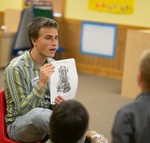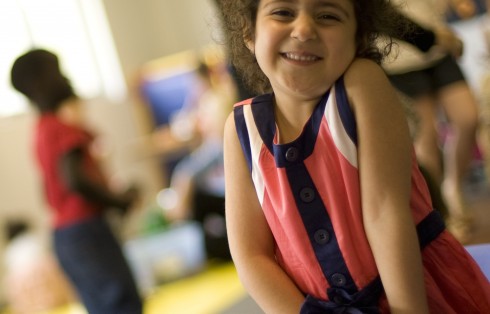Ten Tips On Addressing Kids Fears And Doubts
Sandy Galea from Kidswise shares 10 wise tips on addressing children’s fears and doubts.
Research has shown that children who did not keep their faith into adulthood often felt their doubts and fears weren’t addressed by adults whilst growing up. Research also demonstrates that parents who are real about their faith journey with their children helped children keep their own faith.
(See E.M’s research paper on this website).
1: Be Ready:
Children, just like adults, will go through periods of doubt. Disbelief is the lot of the non-Christian, periods of doubt is the experience of the Christian. So expect that your children will go through periods of doubt just like you.
2: Be Merciful:
Be merciful to those who doubt (Jude 1:22):Our response to anyone experiencing doubt is always mercy. Sometimes the way children express things can be very cute or at times sound funny, but taking their issues seriously is important. Be careful not to belittle or make light of a child’s doubts.
3: Be Calm:
When your child expresses doubts (i.e. God’s existence, Bible being true, Jesus resurrection…) stay calm. Children feel their parent’s anxiety and this can make them feel uncomfortable. Our anxiety can deter them from sharing their doubts in the future.
4: Be patient:
It often takes a child a long time to express their thoughts. Try to understand them before responding.
5: Normalize doubts:
Reassure them that this is normal. Children often think there is something wrong with them if they’re unsure of something Mum and Dad think is true. Take them to heroes like David, Job and Thomas, all whom went through periods of doubt.
6: Encourage Questions:
Encourage your child to express their doubts by encouraging questions. Doubts will continue to grow if not expressed. Encouraging questions is one way of helping children express doubts.
7: Don’t Wash Over Fears:
Fears are very real for children. Night terrors, fear of the dark, fear of being alone, fear of the green and yellow monster under the bed… Encourage your child to talk to their Father in Heaven about their fears and doubts. Sometimes this will mean children end up with a prayer that reads like a shopping list of all the things that terrify them, but speaking them out loud to their Father in Heaven is great! They will eventually grow out of this mantra as their fears subsidy and their prayers will begin to vary.
8: Use Scripture:
Teach your child verses from scripture that address their fears or doubts. Put them on the fridge, their bedroom walls… say them, chant them, sing them as you drive to school… remind them as they fall asleep. Proverbs 3:5-6, Psalm 18:2, Psalm 56:3-4, Psalm 118:6, James 1:5-8, 1 John 4:18.
9: Share Your Own Faith Journey:
Appropriately share your fears and doubts with your child, and what you found helpful.
10: Use Literature:
Read books that address fears and doubts appropriate for your child. The Storm That Stopped, by Alison Mitchell is a great retelling of Mark 4… Jesus asked his disciples, Why are you afraid? It reminds us that we have nothing to fear because our trust is in Jesus, God’s Son. Or, for older children, the books listed below by Lee Strobel are a great start in addressing doubts.
Written by Sandy Galea © 2015 Kidswise. Sandy is the Children’s Minister at MBM Rooty Hill Anglican Church.
Recommended Resources:
* Big Truths For Little Kids, by Susan & Richie Hunt (a helpful book answering big questions kids ask… Did Jesus really come back from the dead? Where is God?)
* Case For Christ For Kids, by Lee Strobel
* Case For Faith For Kids,by Lee Strobel








